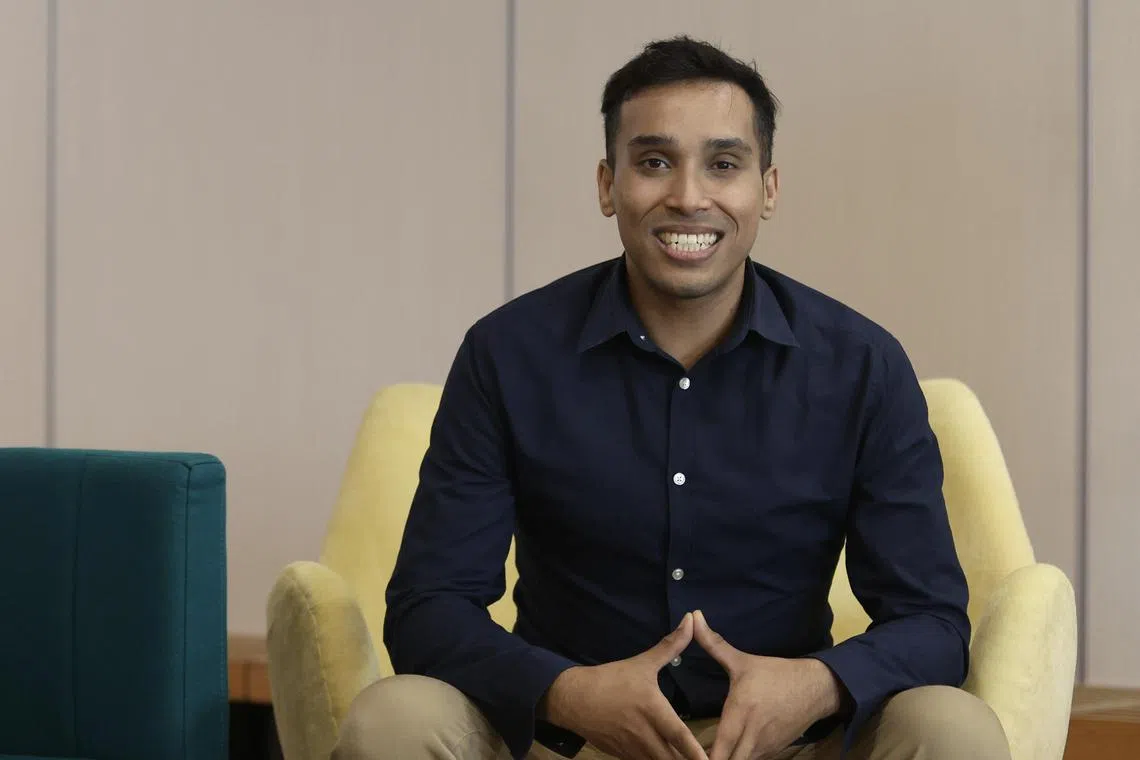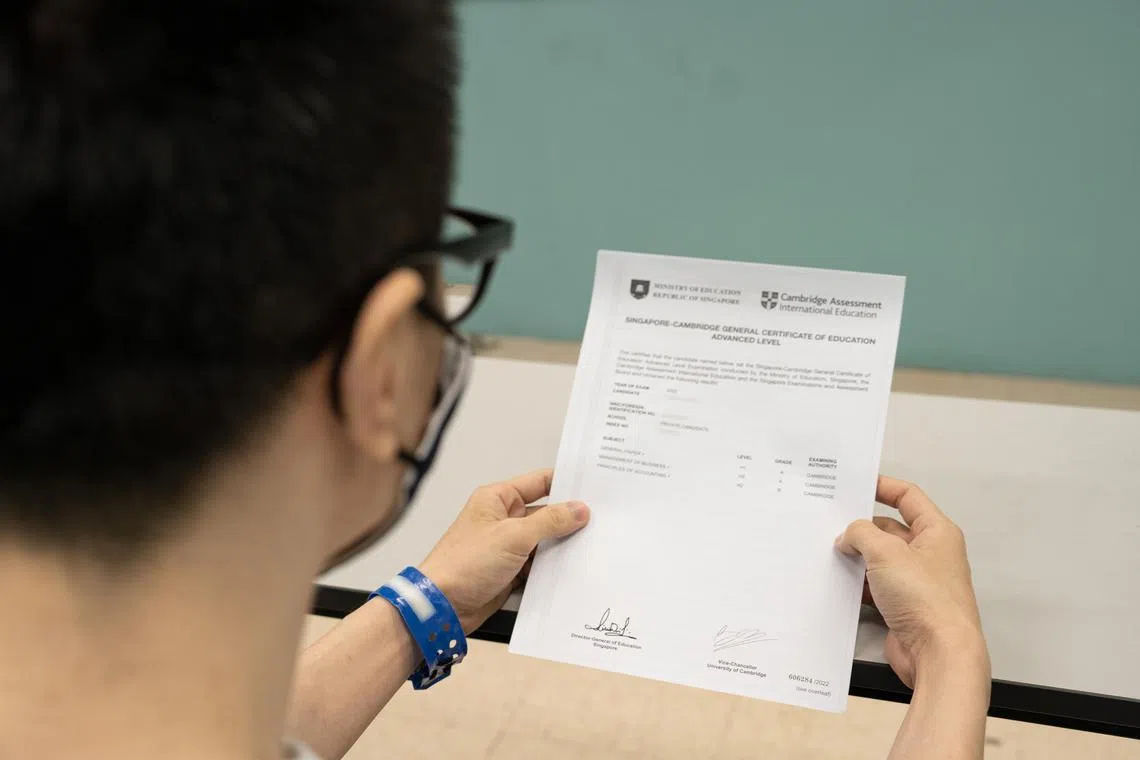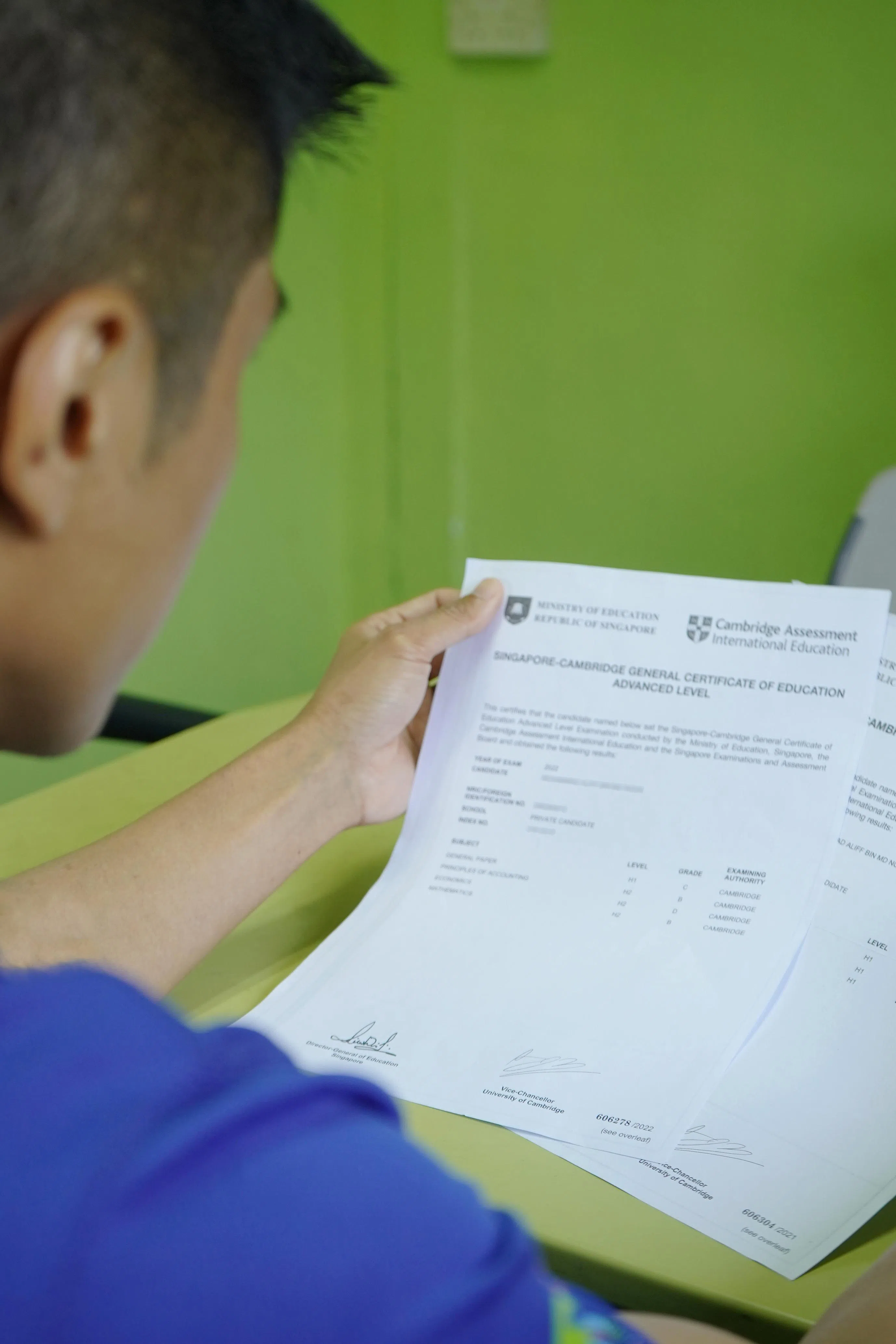Former drug offenders fear discrimination over past convictions
Sign up now: Get ST's newsletters delivered to your inbox

Mr Mohammad Faizal Abdul Wahab currently works as a guest relations executive at a hotel, but says he still is afraid of discrimination.
Singapore Press Holdings Ltd
Follow topic:
SINGAPORE – Former drug offenders say they struggle with self-doubt and even discrimination after their release from prison, sometimes falling to challenges which see the recidivism rate for this group double the longer they are out from behind bars.
Mr Mohammad Faizal Abdul Wahab, who now works as a guest relations executive at a hotel, said he was turned away about five years ago by security officers at a company he just joined.
They had learnt of his previous convictions over drug offences.
The 35-year-old says he has a good job now, and is currently pursuing an industry-relevant degree.
But he initially only told the human resource manager at the hotel of his past, out of fear that he will be judged because he had two stints in prison.
“I’m still very afraid of discrimination, even with what I have today. Employers should judge me as I am currently, not for my past.
“I have sworn off drugs and I won’t go back to that lifestyle again,” he said.
He now volunteers as a peer leader
Singapore Prison Service (SPS) figures released in February showed the two-year reoffending rate at 20.4 per cent, one of the lowest in the world.
This was on the back of effective rehabilitation programmes provided to inmates while in prison, followed by structured community supervision by SPS and aftercare assistance provided by its community partners after their release.
Besides counselling services and programmes at the tail-end of their sentencing, inmates are also given opportunities to pursue higher education.
In 2022, 16 prison inmates received their A-level results, with 10 qualifying for higher education at universities and polytechnics.
Jason (not his real name) is one of them. He said he never imagined that his sixth incarceration, including for drugs, would see him qualify for a university place.
The 38-year-old inmate was once a top scorer for the Primary School Leaving Examination, scoring four distinctions with a T-score of 264.

Jason (not his real name) has done well enough in A-level exams to qualify for a place in a university.
PHOTO: SINGAPORE PRISON SERVICE
He attended a polytechnic after O levels, but dropped out in 2000 after he was arrested for rioting and drug-related offences.
He was incarcerated for the sixth time in 2017 and received a six-year jail sentence for similar offences.
“Growing up, I used to excel academically in school and my mum had high hopes for me,” he said.
“But along the way, I drifted off. When I ended up in prison this time, I realised that my mum was old. I was sick and tired of disappointing her, so I decided to take my A levels in prison school.”
Inmates had nine months to prepare for the exams. Jason said he spent nine to 10 hours self-studying on non-school days and up to five hours on school days.
“It’s not just about the qualifications, but also about gaining discipline and focus, taking responsibility for my own actions and doing something worthwhile.
“I think that’s more important than any A that I got,” he said, adding that he may apply to read business and marketing at the Singapore University of Social Sciences.
Graduating together with Jason is 37-year-old Aaron (not his real name), who also qualified for a university place after sitting the A-level exams in 2022 at the prison school.
Sentenced to prison in 2015 for drug-related offences, Aaron is now serving the tail-end of his sentence at Jamiyah Halfway House as part of the community-based programme, which aims to help inmates re-integrate into society.
He now attends counselling and performs daily chores as part of his rehabilitation.

Aaron (not his real name) sat for his A-level exams at the prison school in 2022, and did well enough to qualify for a place in a university.
PHOTO: SINGAPORE PRISON SERVICE
“This scheme is very helpful. I am occupied every day and sometimes even do community work like Project Happiness, where we get to help the elderly,” he said.
Inmates like Aaron will continue to get aftercare support from organisations such as Yellow Ribbon Singapore and halfway houses after leaving prison.
They can receive financial help from the Yellow Ribbon emergency funds, as well as the Yellow Ribbon Fund (YRF) Skills Training Assistance to Restart Bursary, which helps pay for their education.
Aaron said he will be receiving support from the halfway house to study full-time. He has applied to the National University of Singapore and Nanyang Technological University.
Life after prison is not without its challenges, with many former drug offenders reoffending. SPS figures showed that the five-year recidivism rate is around 40 per cent.
Alan (not his real name) topped the prison school’s 2019 A-level cohort after scoring five As and a B in the exams.
The 31-year-old is pursuing a business management degree at the Singapore Management University, with tuition fees paid by Yellow Ribbon Singapore.
At the university, he was uncomfortable when other students asked him why he had enrolled at an older age.
“My peers do not know my background, and that I was a former inmate. I don’t know how they would take such information,” he said.
Alan added that while he has done well at school, he is worried if his past will prevent him from securing a good job.
“Honestly, we have hit rock bottom in life before, and we know the pain of hardship. So for those who have changed and walked this new path, their drive to succeed is so much more than other people,” he said.

